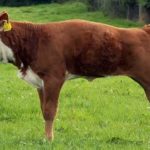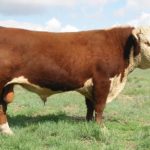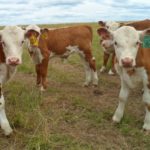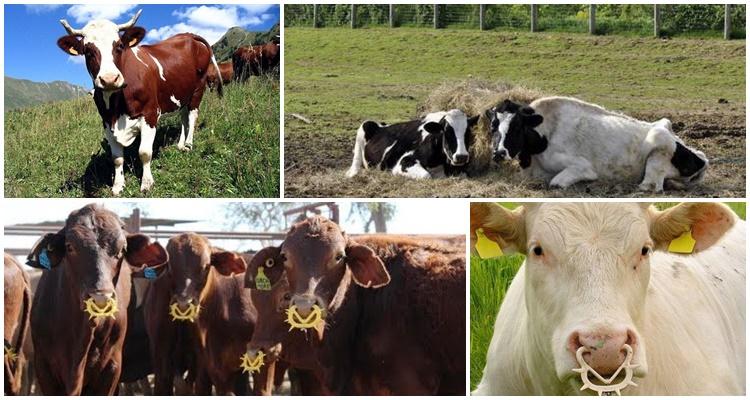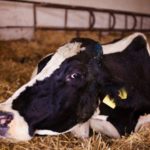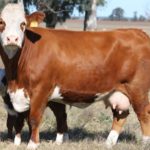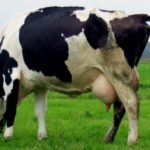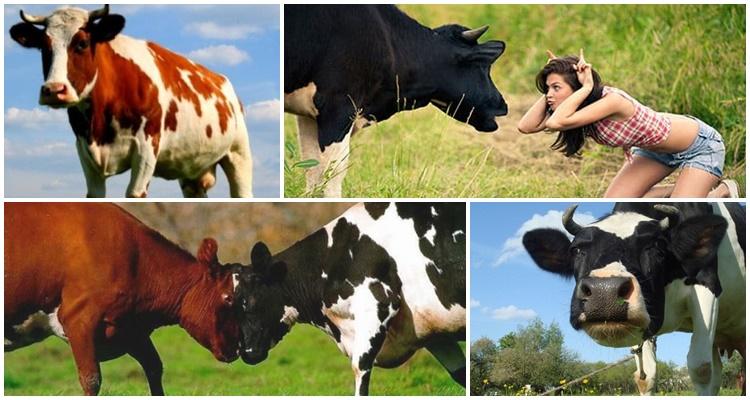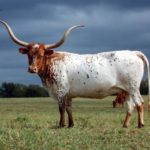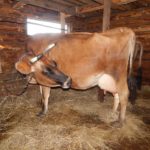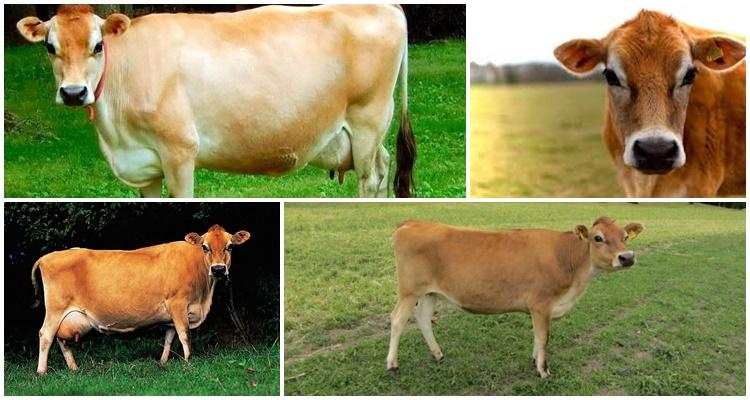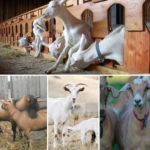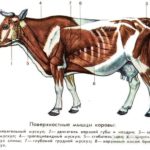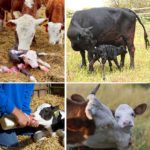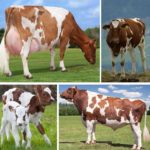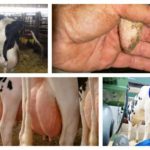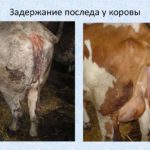Nicknames for animals such as cows have been given since time immemorial. In the old days, nurses and drinkers were called differently. We just tried not to give them human names. This was done to protect the cows from the evil eye, damage and diseases, which, according to superstitions, could pass from humans to cattle. You can come up with a nickname for your pet yourself. The main thing is that the owner of the cow likes this name.
- Names for girls
- Nicknames for bulls
- By color
- Nicknames by month of birth
- Geographic names
- By distinctive features
- Depending on the character
- According to the weather conditions that existed at the time of birth
- By names of flowers and plants
- Original nicknames
- Training a cow to its name
- Is it possible to change the nickname
Names for girls
A young heifer can be given a name that begins with the same letter as her mother's nickname. In any case, this is what they do in many breeding farms. For example, if the cow's name was Zorka, then her girl can be called Zvezdochka (Mika - Masha, Kalinka - Doll, Golubka - Dirty).
Nicknames for animals are invented depending on the breed. For example, the Yaroslavl cow is called Yaroslavka, the Simmental cow is called Sementalka, and the Jersey cow is called Jeri. You can give the heifer a nickname that is consonant with your last name (Ivanov - Ivashka, Nikiforov - Nikishka). The easiest way to name your favorite is by color, character, or the name of the flower. For example, Ryabushka, Veselunya, Dahlia.
Recently, it has become fashionable to name cows after characters from foreign television series. Such words sound original, are not used in a particular area and are just right for animals. Thanks to foreign films, local cows received beautiful names - Rose, Isabella, Matilda.
Nicknames for bulls
You can name a calf with a name that begins with the same letter as the name of its father (an adult bull). This is usually done by farmers involved in livestock breeding. For example, if the bull’s name began with the letter “Z” (Zigzag), then the boy calf could be called Zorky (Vaska - Willy, Krepysh - Krokha).
Young bulls are given a nickname depending on their appearance, character, month of birth, breed, weather and even habitat. The word is chosen so that it suits the animal and pleases its owner. If desired, bulls are even named after heroes of foreign films or children's cartoons. For example, there are bulls named Arnold, Rodrigo, Luis Alberto, Gavryusha.
By color
Most often, the animal receives a name corresponding to its color. For example, a piebald cow is given the name Piebald, a black one - Chernushka, and a motley cow - Pestrushka. In the old days, the simplest and easiest nicknames were given to animals based on the color of their fur. The black cow was called Gypsy, the white cow was called Snowball, and the red cow was called Ryzhik.
Nicknames by month of birth
You can give the calf a name corresponding to its month of birth. This word will always serve as a kind of hint, reminiscent of the age of the animal. For example, a calf born in April can be called April, in May - Maika, in July - Iyulka, in October - Oktyabrinka, in December - Dekabrinka. Cows respond best to a word that has the letter “r” in it.
Geographic names
Nicknames that are consonant with geographical names sound beautiful. The animal can be given the same name as a Russian river, mountain, village, city. For example, Baikal, Olenok, Indigirka, Kazbek. It is desirable that the name reflects the habitat of the animal. A cow from the village of Vyatskoye can be called Vyatka, from Aleksandrovka - Alexa, from Sosnovka - Sosenka.
By distinctive features
Often an animal is given a nickname, taking into account some of its characteristic features, that is, a white star on its forehead (Zvezdochka), a black spot on its back (Pyatnushka), large ears (Cheburashka). If a cow has a white head, then, for example, it can be called White-headed, Squirrel or Belashka. A bull with curled horns is often called a Bagel.
Depending on the character
An animal is often given a nickname based on its temperament. There are calm and affectionate cows (Laska, Quiet, Milashka). Playful and cheerful bulls are given the nickname Krykun or Igrun, Veselun. For wayward animals, the names Wild or Shaitan, Fierce, Tiger, Othello are suitable.
According to the weather conditions that existed at the time of birth
Some people give the calf a name that matches the weather conditions to remember the calf's birthday. In any case, the animal receives an original nickname, perhaps somehow influencing its fate or temperament. Popular names for calves: Wind, Snowball, Hurricane, Rain.
By names of flowers and plants
Animal names based on the names of flowers sound beautiful (Chamomile, Bluebell, Peony, Narcissus, Dahlia). You can give the calf a name like a tree, for example, Birch, Rowan, Ivushka, Oak, Hazel. There are also unusual animal names, also borrowed from plants: Lavender, Sage, Banana, Orange.
Original nicknames
Animal names, invented with humor, sound unusual and original. In villages they like to call cows Ryumochka, Princess, Countess, Thumbelina, Parisian. Bulls are sometimes given names that are completely unusual for rural areas - Caesar, Jupiter, Spartak, Jack, George. Children love to name calves after computer or cartoon characters (Stalker, Shepard, Kratos, Applejack, Scrat).
Training a cow to its name
The name of the animal is given from its very birth or at the time of purchase of a small calf. And only one thing. It is very important to teach the baby the word that corresponds to its name. This is not an easy task, but a rewarding one. It will take a lot of time before the animal understands that it is being addressed and remembers its name.
The name is spoken out loud every time you approach the calf.The animal must hear its name and understand that this word refers specifically to it. It is advisable to pronounce the name of the calf several times a day, and in different interpretations (“I give Zorka the grass,” “Zorka, let’s go for a walk,” Zorka, stop,” “Zorka, let me scratch behind your ear”). When addressing an animal, you need to add a gentle note to your voice. Cows always respond to affection; kind words bind them to their owner. The more often you talk to an animal, saying its name out loud, the faster it will be remembered.
If a cow is grazing in a meadow, you can call her and give her a piece of sugar or a quarter of an apple. The animal will understand that by calling out a word addressed to it, it will receive some kind of tasty reward.
Treats are a good motivation for a cow to remember her name. Moreover, this technique works better than affectionate phrases. The main thing is to constantly pronounce the same word. If you call a cow by a different name each time, she will not understand that you are addressing her specifically. Different words can confuse an animal. It is advisable not to talk much with the cow, but to focus the conversation on only one word - its name. Usually a small calf gets used to its name in just a few weeks.
True, due to its stubborn or playful nature, the animal does not always want to respond to its native name. In addition, cows also know how to take offense. If you shout at a cow, calling her by name, this will be imprinted in her memory and cause an unwanted association. The cow will begin to avoid its owner, who calls her with the word that reminds her of unpleasant events.
Is it possible to change the nickname
You can change the name of a cow at any age, but it is not recommended. If for some reason you don’t like the animal’s name, you can teach it a new one.True, you will have to try hard and spend a lot of time talking with the cow. The main thing is when communicating with a cow, always call her by her chosen name. And the same one.
Your favorite cow treat (a piece of sugar, a quarter of an apple, a pear) will help you better learn a new word. You need to treat a cow only if she turns her head and responds to her name. Adult animals get used to a new name more slowly.
The main thing is not to give up and constantly accustom the cow to the word that will become its nickname. In the process of accustoming to a new name, you need to ensure that it always evokes only positive associations in the animal. If you shout at a cow and at the same time pronounce its name, then, most likely, it will be reluctant to call out its name.
When buying an adult cow, it is better to come to terms with its name. Especially when the animal willingly responds to it. The fact is that the animal’s nickname is associated with some important episodes and stages of its life. The cow is already accustomed to the words after which she is fed or milked. An adult animal simply may not perceive other phrases.

